What Actually is Flexible Working in the PR & Comms Industry
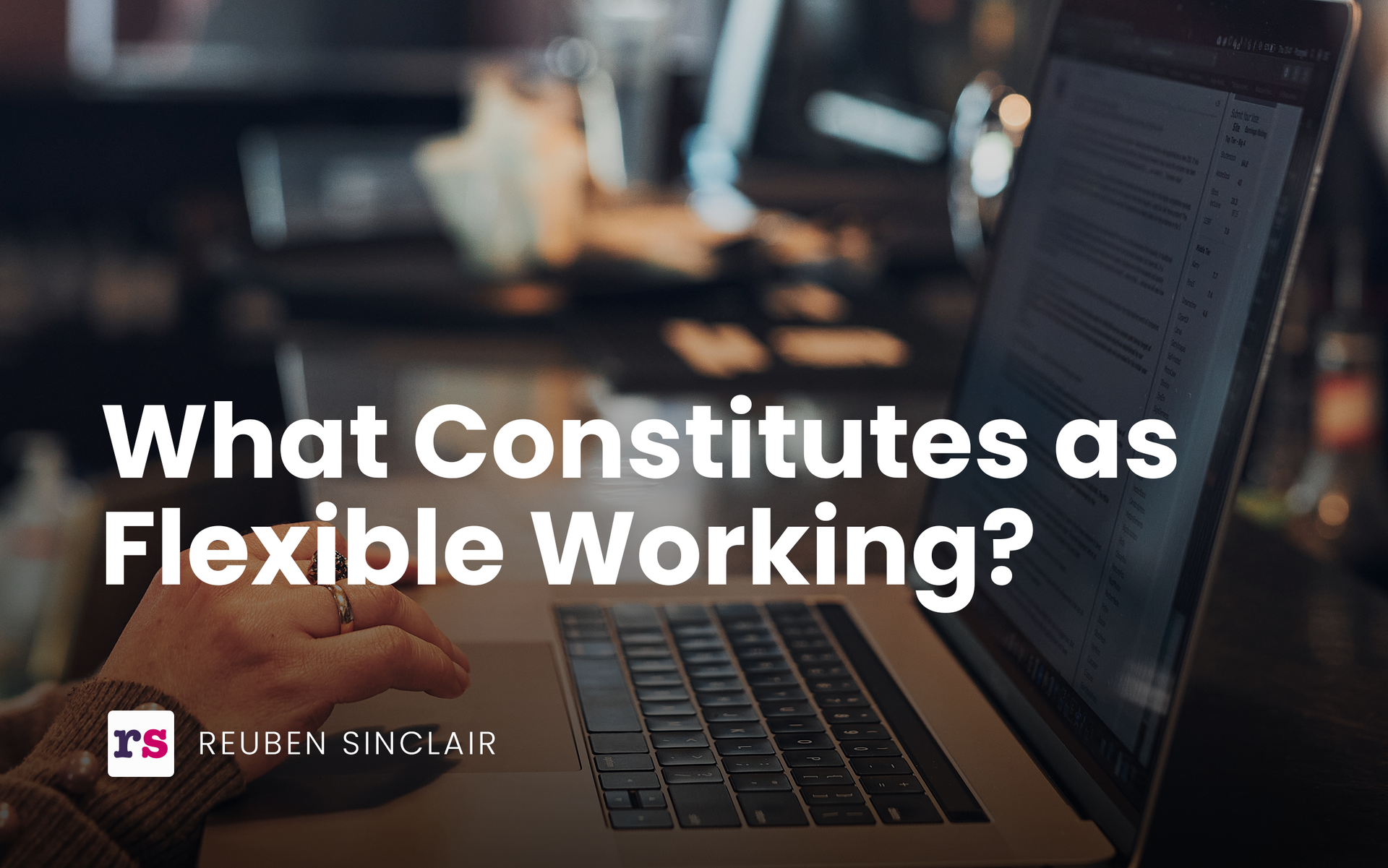
What constitutes 'Flexible Working' in the PR and Communications Industry? - Survey Results

Who are we?
Established in 2007, Reuben Sinclair is a London based recruitment agency working at the heart of the PR and Comms industry.
Our success and growth is purely down to putting our clients, candidates and employees at the heart of everything we do.
We’re the sole talent partners to the PRCA, founded the PR leadership forum ‘PRogress’ and the peer-to-peer networking group ‘Parents in PR’, and we have recently been recognised as ‘SME Recruitment Agency of the Year’ for our work within the PR & Communications Industry.
The purpose of the Survey
Reuben Sinclair is on a mission to help make the PR and Communications industry more inclusive and as part of this we wanted to understand the flexible working needs of individuals working in the industry.
Beyond meeting the personal needs of individuals, the commercial argument for flexible working is a strong one. Research by Giardini & Kabst in 2008 found that flexible working can reduce absence rates, and the Institute for Employment Studies & The Work Foundation found that higher levels of engagement, experienced by working flexibly, can reduce staff turnover by 87%. Furthermore, a survey by YouGov in 2023 found 89% of people said they would be more loyal to an employer who offered flexible work opportunities and 86% said having access to their preferred flexible working pattern makes, or would make, them more productive at their job.
However, over the last few years, society’s views and expectations of flexible working have changed drastically. In order to enable employers within the PR and Communications industry to meet the needs of their current and prospective employees, and therefore ensuring they reap the commercial benefits of offering flexible working, we need to define what flexible working means.
Rather than looking at what flexible working policies are currently offered by employers in the PR and Communications industry, this survey was designed to understand what was considered to be truly flexible from the perspective of the workforce. With this understanding we can better advise on how to attract and retain talent within the PR and Communications industry.
Headline Results
- 194 respondents in total.
- 84% said flexible working hours were important to them, of which 66% said this meant having the ability to take time off for personal reasons during the traditional working day and make up the time elsewhere.
- 84% said hybrid working was important to them, of which the highest proportion (42%) said they’d prefer two days a week in the office and 58% said they’d prefer to have the choice over which days they were in the office vs home.
- 39% said they’d like to work part time, with the majority of those (57%) wanting to work four days a week.
- 14% said that they’d like to be able do a job share.
- 32% of those currently employed said their employer doesn’t meet their flexible working needs.

Snapshot Demographics of Respondents
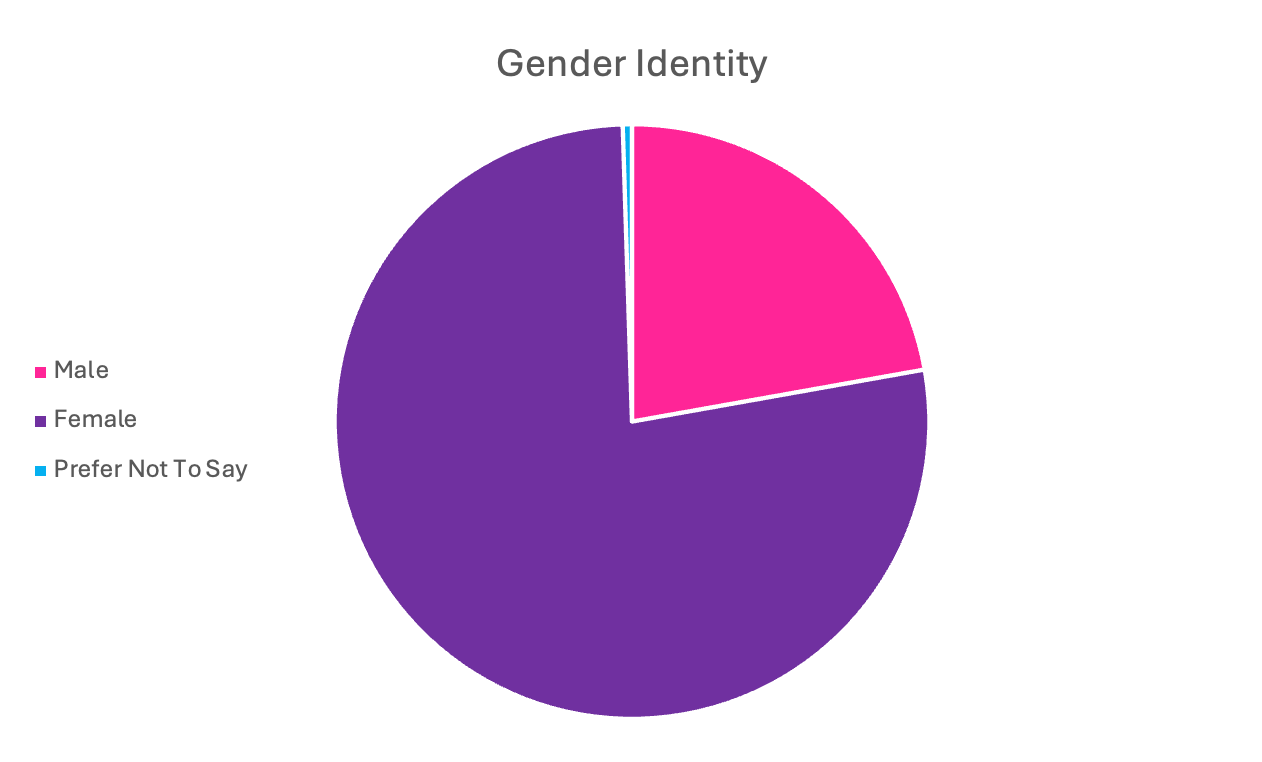
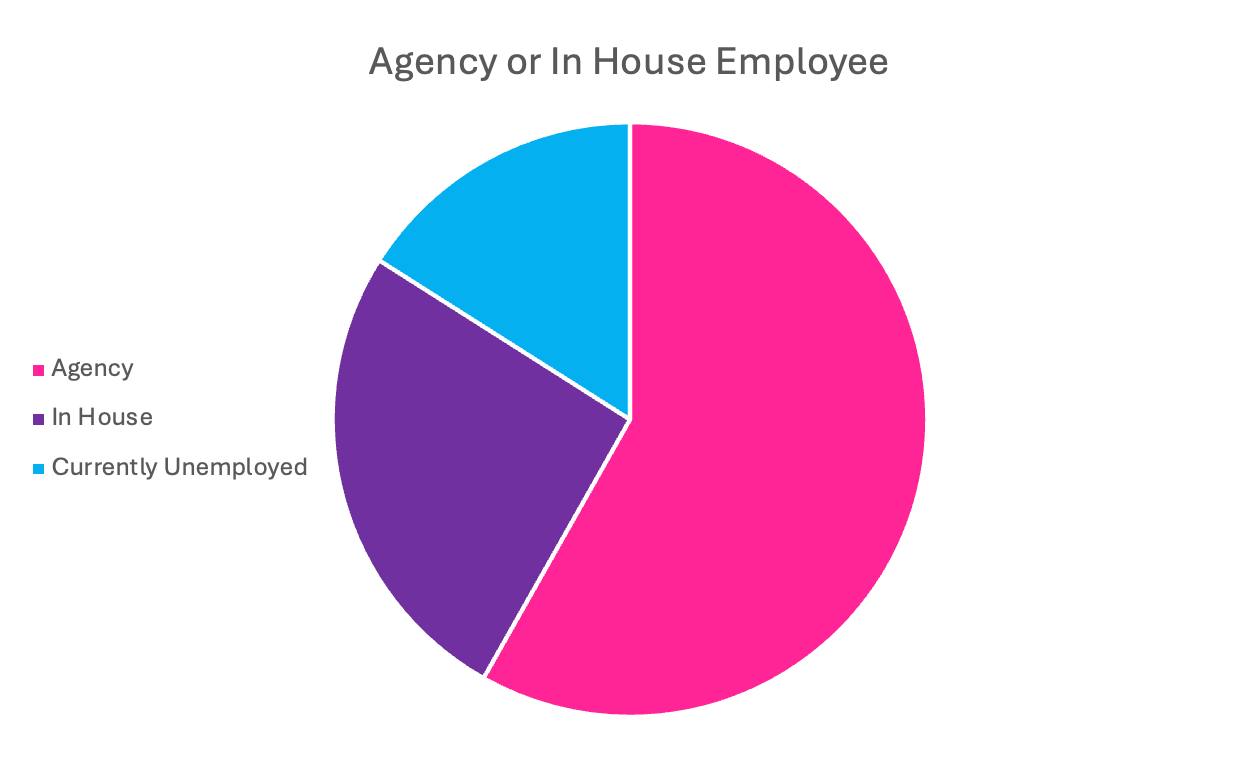
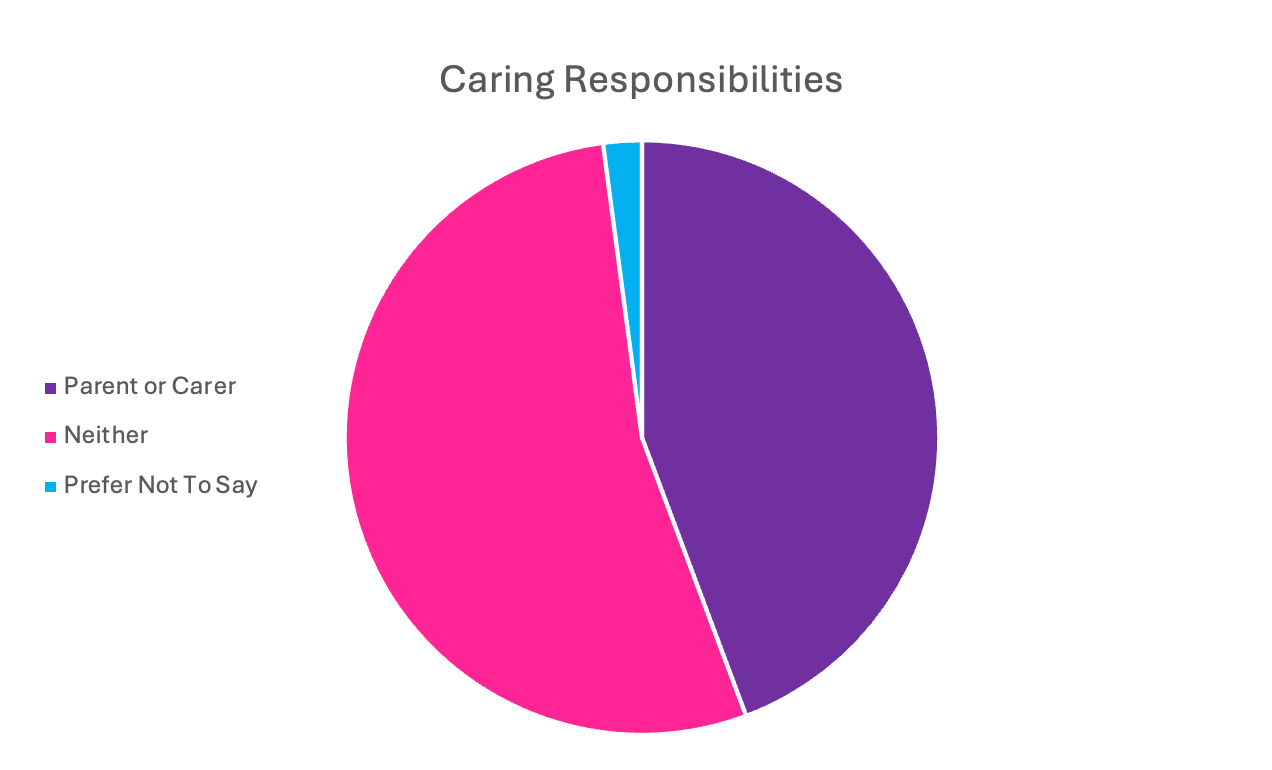
Results
Flexible Working Hours
Flexible working hours were stated as being an important flexible working requirement for 84% of people taking the survey.
Of these people, 66% said they’d like this to mean they had the ability to take time off for personal reasons during the traditional working day and make up the time elsewhere. 60% said that they’d like the ability to choose their start / finish time as long as a set number of hours is worked, and 32% said that for them, flexible working hours meant having complete autonomy over which hours they work during their working week (i.e. no core hours / set hours).
Hybrid working
Hybrid working was considered an important flexible working requirement for 84% of people taking the survey.
Of these people, most wanted to work in the office two days per week (42%). Only 19% wanted to work in the office three days per week, which is often considered ‘the norm’ when referring to hybrid working. Occasional working (i.e. once a fortnight) was something 15% of people said they’d prefer. Only one person said they considered four days a week in the office sufficient for hybrid working.
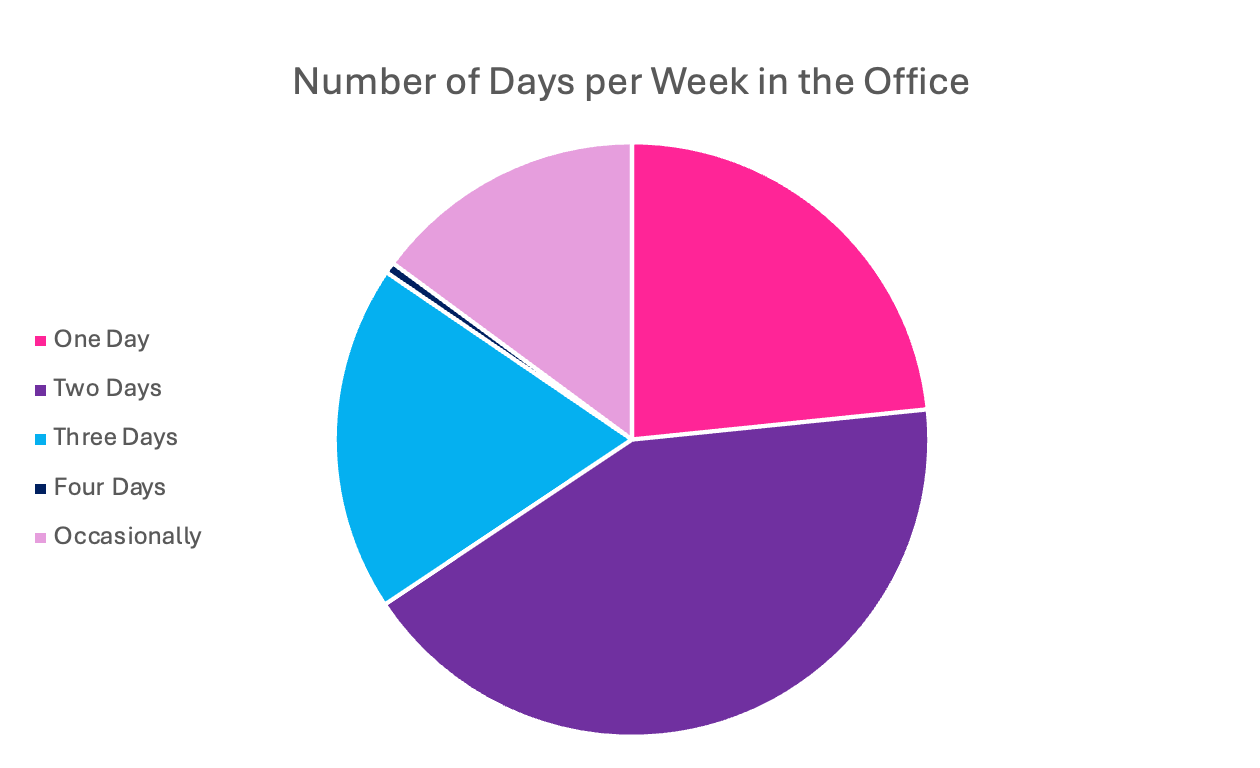
Of the people that considered hybrid working important, most (58%) said they’d prefer to have a choice of which days they come into the office rather than having set days.
17% said they don’t mind as long as they get to work on a hybrid basis, with the remaining 25% saying they’d prefer set days in the office.
Part time / Job shares
39% of respondents said that working part time is important to them, and 14% said that they would like the option to work a job share.
Of those that wanted to work part time, most (57%) wanted to work four days a week, with 40% wanting to work three days a week, 3% two days a week, and no one selecting once a week.
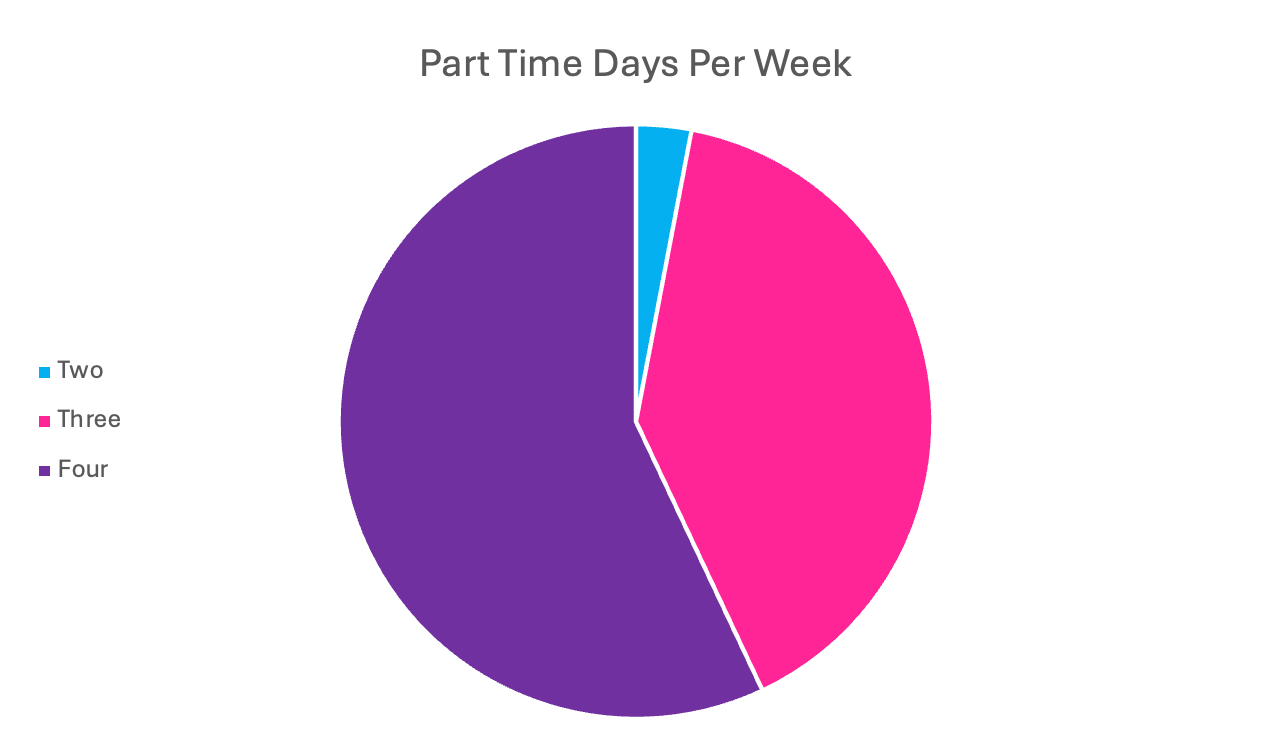
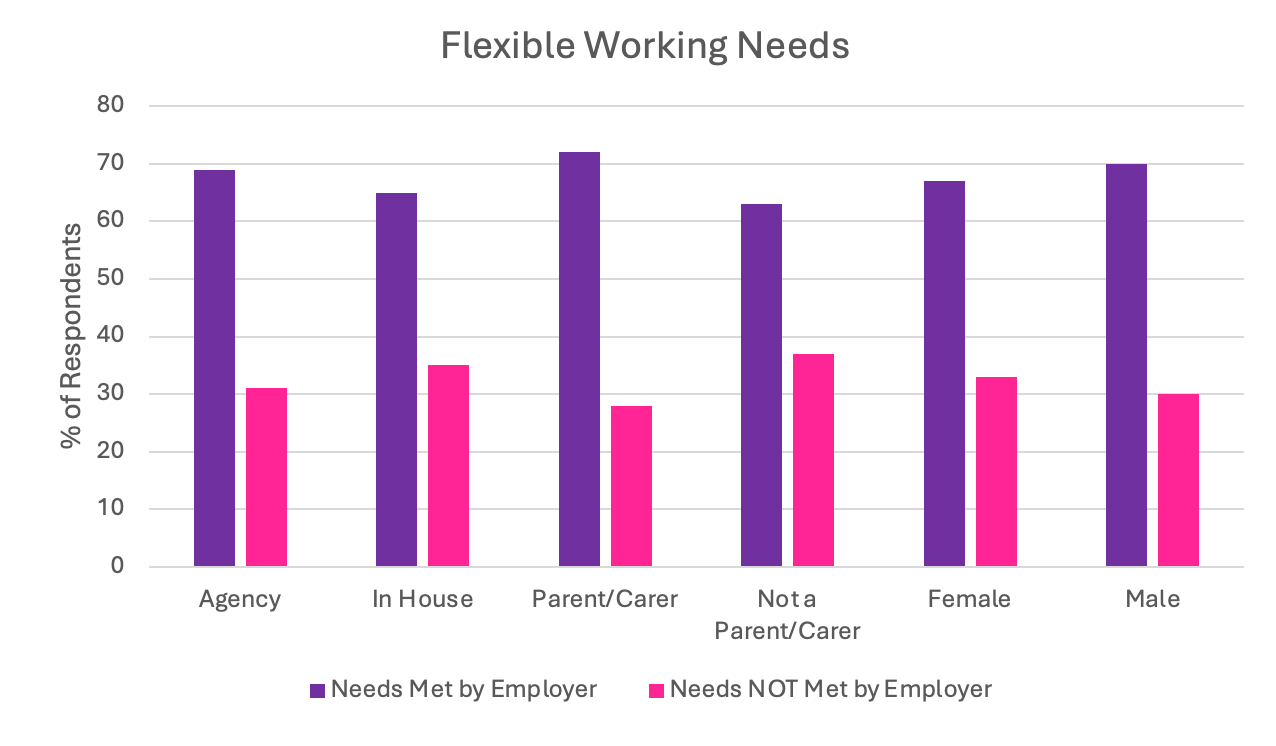
Needs vs Current Situation
When asked about their current situation, nearly a third (32%) said their employer does not meet their flexible working needs.
When breaking this down by demographic, 31% of agency employees said their employer doesn’t meet their flexible working needs vs 35% of in house employees. 28% of parents or carers didn’t have the flexible working they desired, which rose to 37% of those that are not parents or carers. Finally, 33% of women’s flexible working needs were not met, vs 30% of men’s.
What Does this Mean for Employers?
Many employers tell us they offer flexible working but when asked what that looks like, they say they allow their team to work from home twice a week. This survey shows that would only be considered as meeting the flexible working needs of 19% of those that valued hybrid working (which is 84% of the population). However, if those employers were to increase this to three days per week, they would meet the needs of over double the number of people.
What’s also essential to consider is that the same number of people that said hybrid working was important also said flexible working hours were important. This is often a benefit overlooked by employers. When developing a flexible working policy it’s important to consider not only location of work, but hours too.
Over a third of respondents said that part time work was important, with the vast majority of those wanting to work four days a week. This highlights that enabling a conversation around part time work doesn’t necessarily mean a large reduction in days/hours. A relatively low number said that a job share was important – perhaps more could be done in the industry to educate the population on how this works for both employers and employees.
Parents’ and Carers’ flexible working needs were shown to be met more frequently than those without caring responsibilities, which perhaps suggests that employers have put into place good policies for those that more obviously need flexibility, but have forgotten about their wider workforce. Employers should be mindful that flexible working benefits different people in different ways. It shouldn’t always be presumed that it’s only useful for those with parental and caring responsibilities. For true inclusiveness, flexibility needs to be an option for all employees.
Of course, employers can choose to disregard what their current and prospective employees want when it comes to flexibility. However, the risk is that their existing team will choose to leave and join an agency that provides greater flexibility, and when hiring to replace them, employers may struggle if they don’t meet the needs of the talent pool. Whilst two thirds of the population have their flexible working needs met, a third don’t. That’s potentially a third of an entire PR and Communications agency or team that’s not feeling satisfied and is therefore at risk of leaving if there’s a better opportunity presented to them. However, for those getting flexible working right, according to the CIPR’s Population Report there are 63,563 PR and Communications practitioners in England and Wales, which means there’s potentially 20,000 people that might be interested in joining you because you’re able to meet their needs better than their current employer.
Flexible working is such an individual thing; what works for one person might not work for the next. Therefore to create an inclusive culture, employers should be adaptable with their policies and have regular conversations with their employees about what’s working.
What Does this Mean for Employees?
Simply, you’re not alone in wanting to work flexibly, so don’t let any employer – current or prospective – tell you you’re being unreasonable in wanting to do so.
In April 2024, the Employment Relations (Flexible Working) Act came into force, which gives any employee the statutory right to make a flexible working request from day 1 of employment. You can make two requests per year, your employer must give you a decision within two months and, crucially, you don’t have to explain your reason for wanting flexible working (although the general consensus is that it’ll probably help your case if you do). If your employer intends to deny the request, they’re required to consult with you, which aims to open up the conversation and lead to a better agreement for both parties.
Hopefully these survey results give you the confidence to have those conversations with your employer if you’re one of the 32% who’s flexible working needs are not currently met.
What Next?
While this survey doesn’t provide a benchmark for what’s currently offered by other PR and Communications employers, it provides something far more valuable; an insight into what should to be offered.
If you’re an employer wondering how to make changes to your flexible working policies or an employee that wants to understand what alternative options are available, please get in touch for advice.











